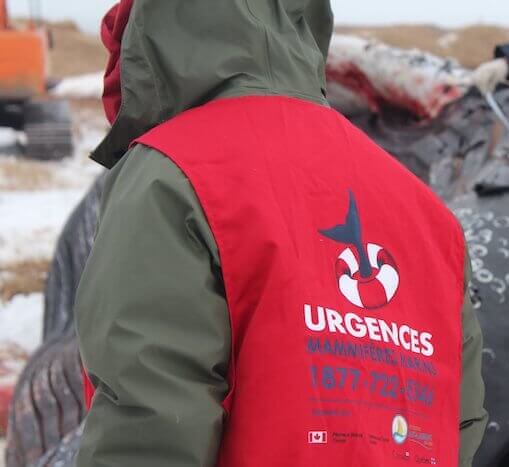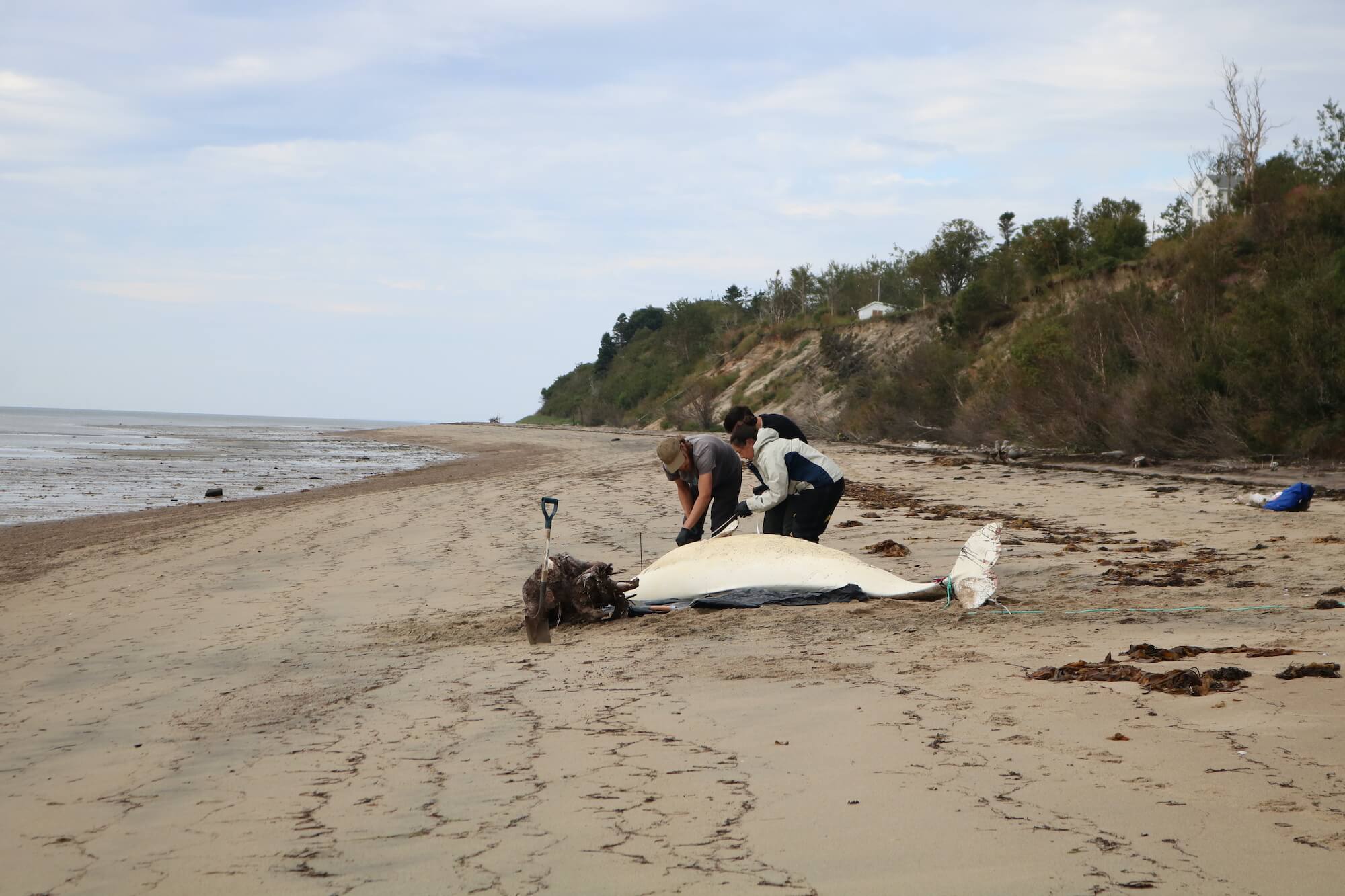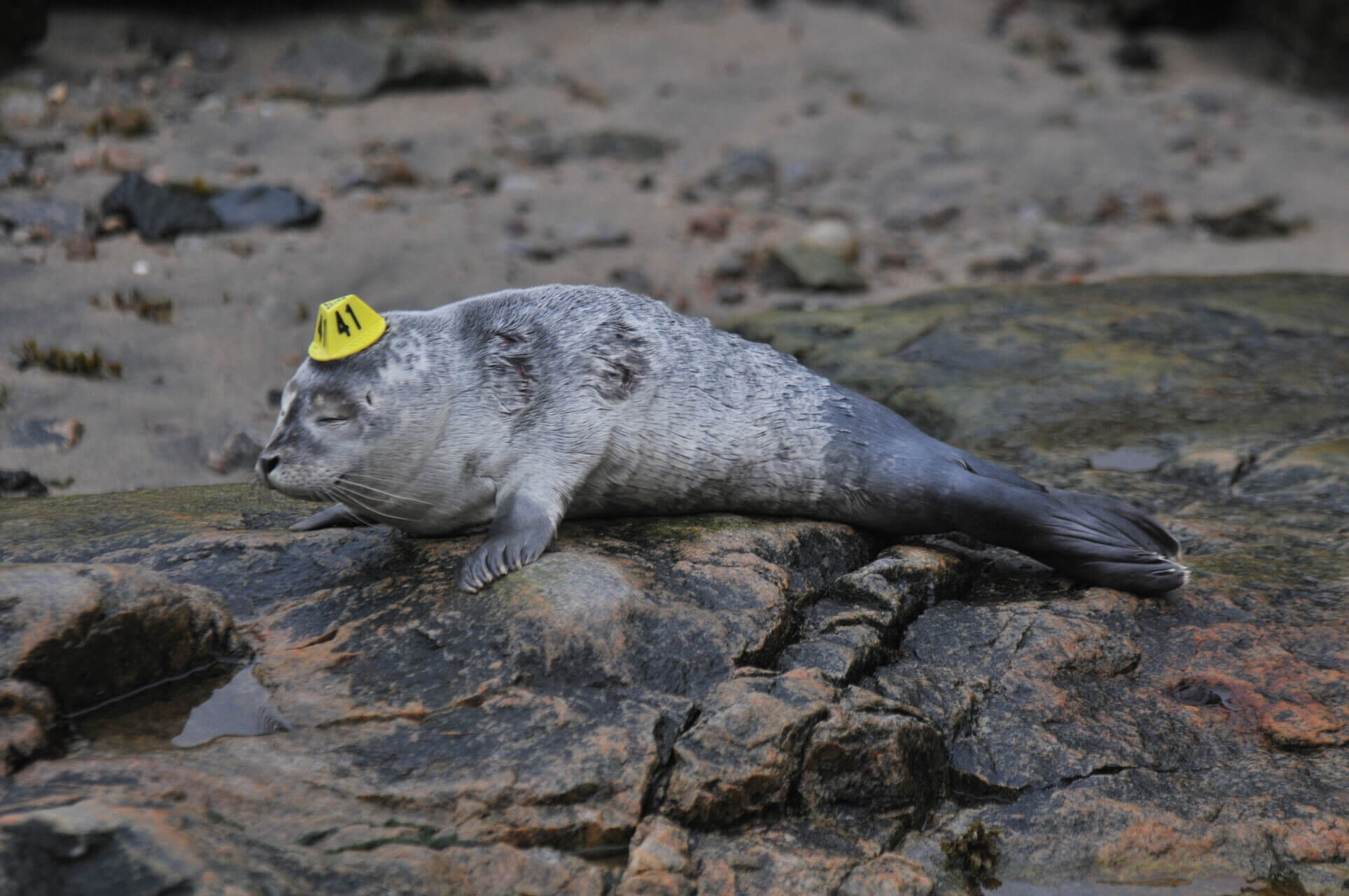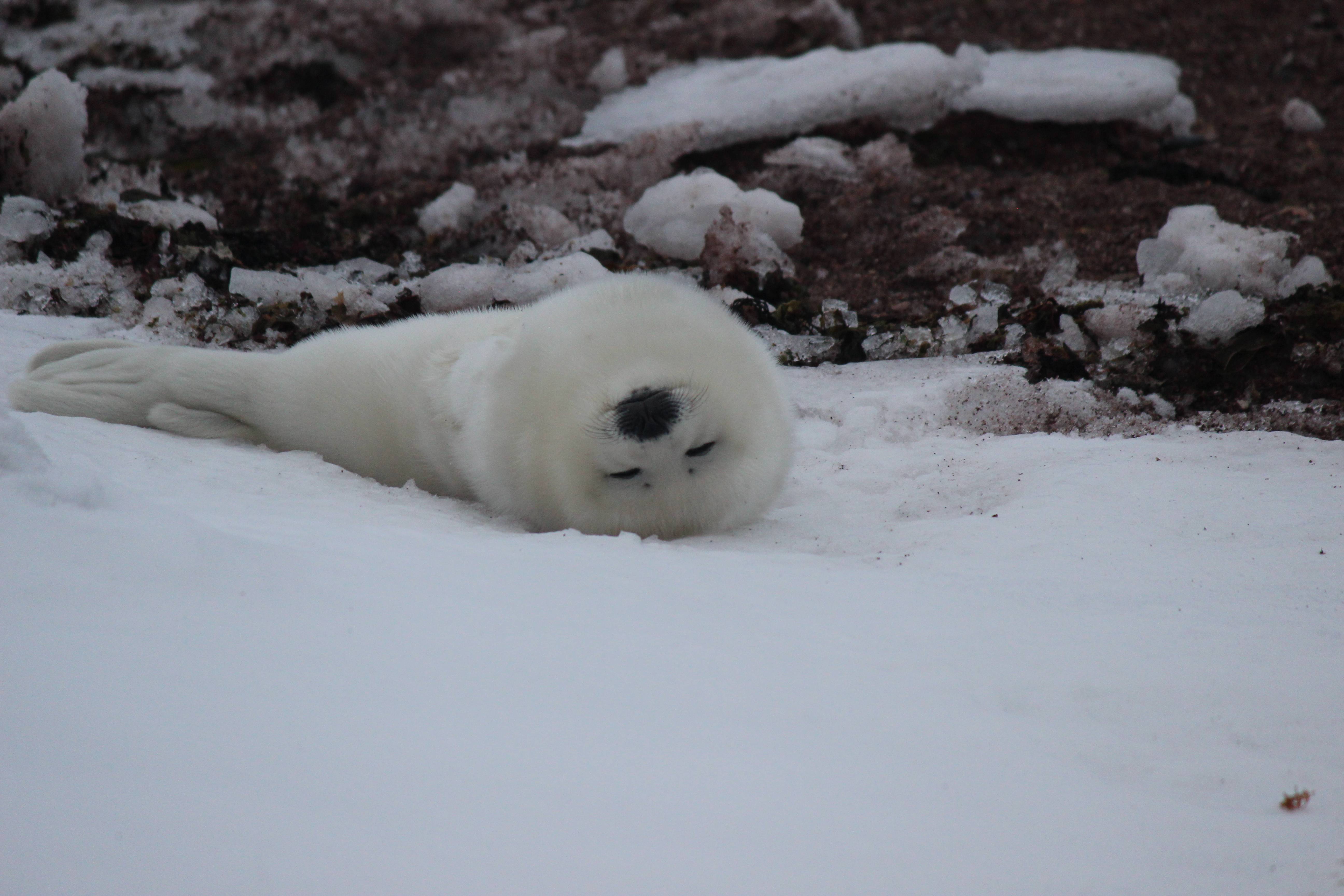Even if snow covers the shores of the St. Lawrence, Marine Mammal Emergencies continues its work. Throughout the winter, the call centre will continue to take calls for cases of dead or vulnerable whales or seals. And the holiday season is no exception: we answer 1-877-7Baleine 24 hours a day, 365 days a year.
Busy start to winter
A large hooded seal seal is attracting the interest of many citizens of the municipality of Saint-Georges-de-Malbaie in the Gaspé Peninsula. Hooded seals are occasional visitors to the area. It is even rarer to observe one on shore, and even more so to see it rolling in the snow!
In winter, different species of seals can come onto dry land or the pack ice to rest, breed and eventually give birth. These activities make them more prone to disturbance by passers-by. If you see a seal out of the water, observe it from a distance and do not worry, this is a completely normal and natural phenomenon! The animal splits its life between land and the sea; it will therefore return to the water when the time is right. Enjoy the encounter by giving the animal privacy so that it can fulfil its vital needs.
On December 16, several locals between Grande-Rivière and Cap-d’Espoir in the Gaspé observe a whale carcass slowly drifting offshore. The whale’s distended belly forms a huge balloon that can be seen from afar. Witnesses dial 1-877-7Baleine and, without delay, we dispatch a volunteer to document the situation. Thanks to her photos, we confirm that it is a fin whale carcass.
On December 17, the carcass washes ashore, but because it lies in a difficult-to-reach location and is partially submerged, the Network decides not to send any volunteers. Since they have a wealth of experience and training, officers from Fisheries and Oceans Canada go to the site instead. Conditions prove difficult, and one agent gets his boots filled with frigid water. Nevertheless, they manage to take samples. For the moment, the cause of death remains unknown.
The Mingan Island Cetacean Study (MICS) team will receive some of the samples in hopes of obtaining a genetic snapshot of the animal and matching it with a known individual. Fisheries and Oceans Canada will use the other part of the samples to analyze the animal’s diet and study its contaminant profile. This information will contribute to science and thus help better protect the fin whales that visit the St. Lawrence, a population considered “vulnerable” by the federal Species at Risk Act.
Thank you for your collaboration!
The holiday season does not mean winter vacation for Marine Mammal Emergencies. Contact us at 1-877-722-5346 if you encounter a dead, stranded or vagrant marine mammal the next time you’re out for a walk along the coast.
On behalf of the entire Marine Mammal Emergencies team and partners of the Quebec Marine Mammal Emergency Response Network, we wish you a very happy holiday season. Thank you to all those who helped us fulfil our mandate in 2018!





